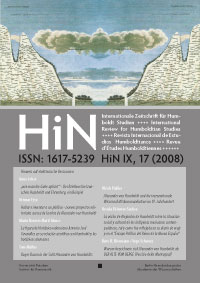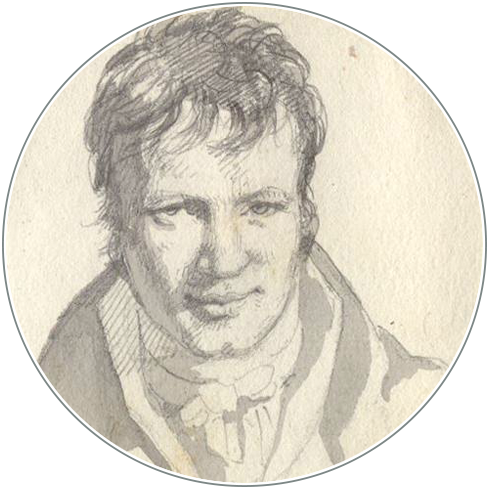Alexander von Humboldt und die transnationale Wissenschaftskommunikation im 19. Jahrhundert
DOI :
https://doi.org/10.18443/115Résumé
Résumé
Alexandre de Humboldt et la communication scientifique transnationale au XIXe siècle
Alexandre de Humboldt fut surnommé le „cosmopolite scientifique“. Au travers de sa correspondance et d’un réseau de relations personnelles, il a maintenu des échanges scientifiques, caractéristiques de la république des lettres du XVIIIe siècle.
L’article analyse comment Humboldt adapta cette pratique cosmopolite de la communication à la culture scientifique du XIXe siècle. Dès 1830 Humboldt fut au centre de l’échange scientifique existant entre les centres scientifiques de Berlin et Paris. En outre, de 1830 à 1850, il encouragea les projets scientifiques internationaux. Ces exemples démontrent que Humboldt observait l’évolution de milieux scientifiques particuliers dans des cadres nationaux ainsi que l’ouverture progressive des sciences au public. En plus, ils indiquent qu’il exploitait ces développements quand il promouvait les sciences en Prusse. Lors des controverses au sein de la communauté scientifique parisienne, les savants français assignèrent à Humboldt, et ce malgré-lui, le rôle d’expert étranger«neutre». Ainsi, le développement des sciences au XIXe siècle a finalement compromis sa position d’homme de lettres indépendant.
Abstract
Alexander von Humboldt and 19th Century Transnational Scientific Communication
Alexander von Humboldt has been labelled a “scientific cosmopolitan”. Through his vast correspondence and a network of personal contacts, he upheld a form of scientific exchange that was characteristic of the eighteenth-century “republic of letters”.
This article examines how Humboldt adapted this cosmopolitan tradition of communication to a nineteenth century scientific culture that was largely institutionalized and was becoming increasingly nationalized. Humboldt quite successfully fostered scientific exchange between Berlin and Paris after 1830 and, on various occasions between the 1830s and 1850s, readily advocated international large-scale projects. These examples demonstrate that Humboldt observed the development of nationally defined scientific cultures and the opening of the sciences towards the public realm. Moreover, they indicate how he was able to make use of these developments as he promoted the sciences in Prussia. In scientific controversies within the Parisian scientific community, Humboldt was involuntarily assigned the role of a “neutral” foreign arbitrator. Thus, the development of nineteenth century sciences also jeopardized Humboldt’s unique position as an independent “homme des lettres”.
Téléchargements
Publiée
Comment citer
Numéro
Rubrique
Licence
(c) Tous droits réservés Ulrich Päßler 2008

Ce travail est disponible sous licence Creative Commons Attribution - Pas d’Utilisation Commerciale 4.0 International.
Les droits des articles envoyés restent la propriété de leurs auteurs et sont publiées sous la licence Creative Commons-Lizenz (CC BY-NC 4.0). Tous les auteurs publiant dans le HiN doivent accepter ce modèle de licence.
Les auteurs doivent eux-mêmes s’occuper de l’obtention des droits d’auteur pour les images utilisées.
Les divers éléments de la mise en page et du design de la revue sont protégés et ne peuvent être récupérés et réutilisés dans d’autres publications sans autorisation préalable de la part de HiN.










